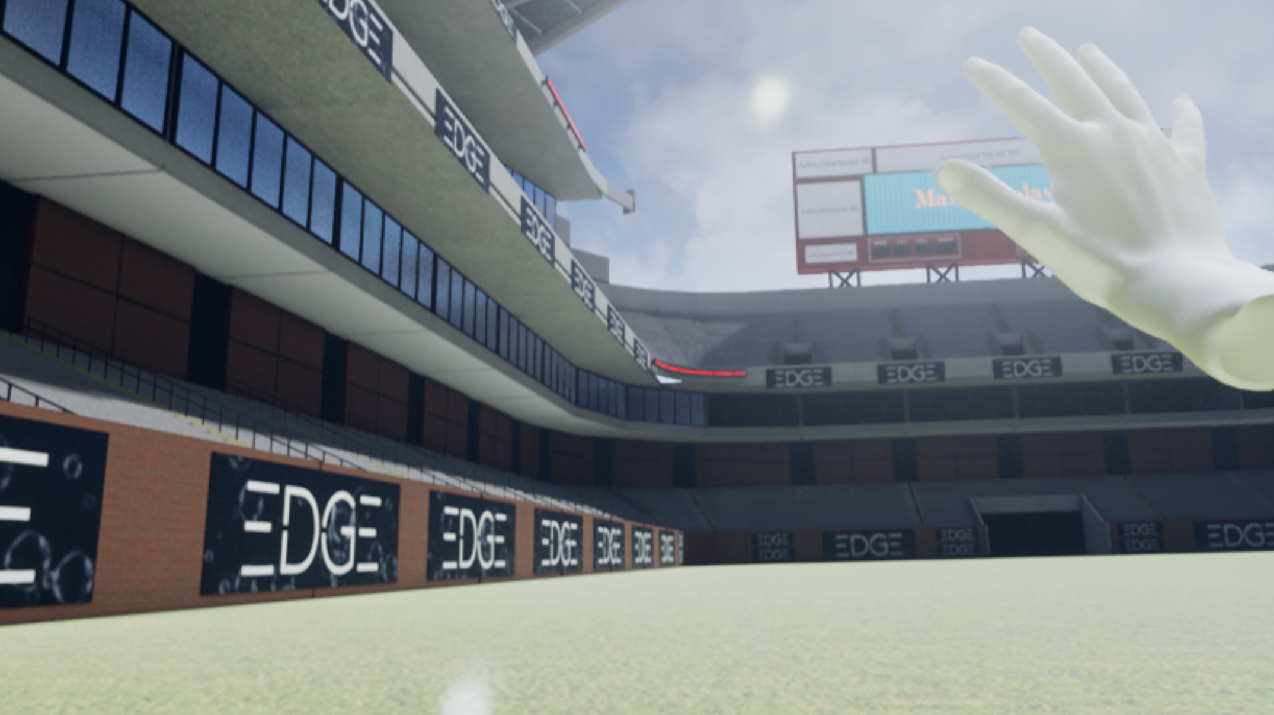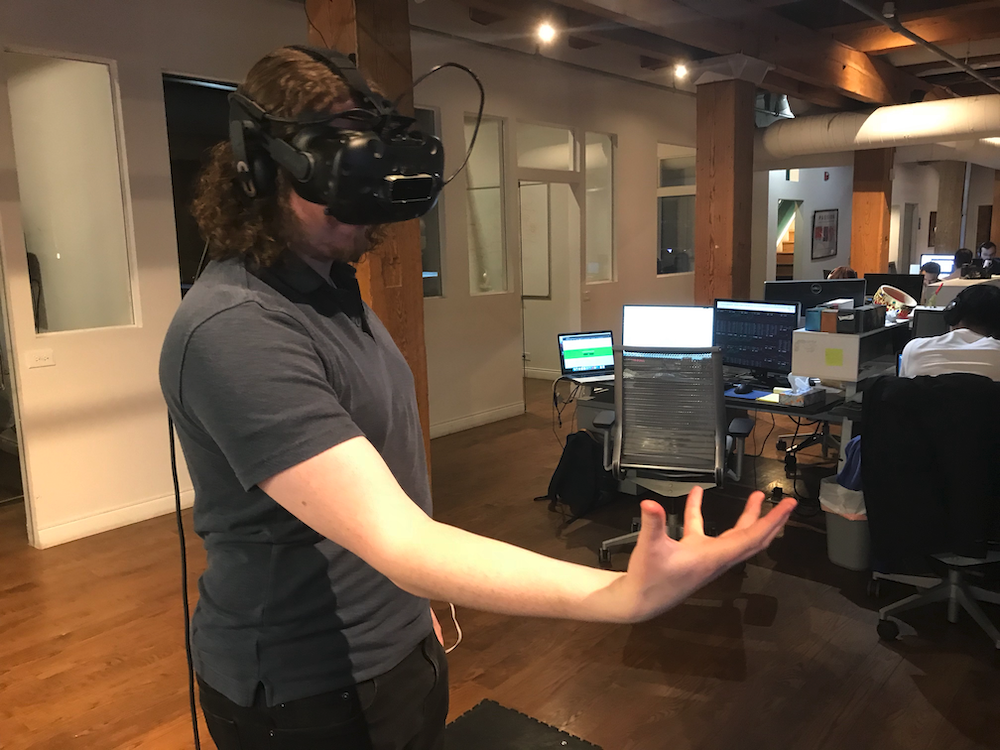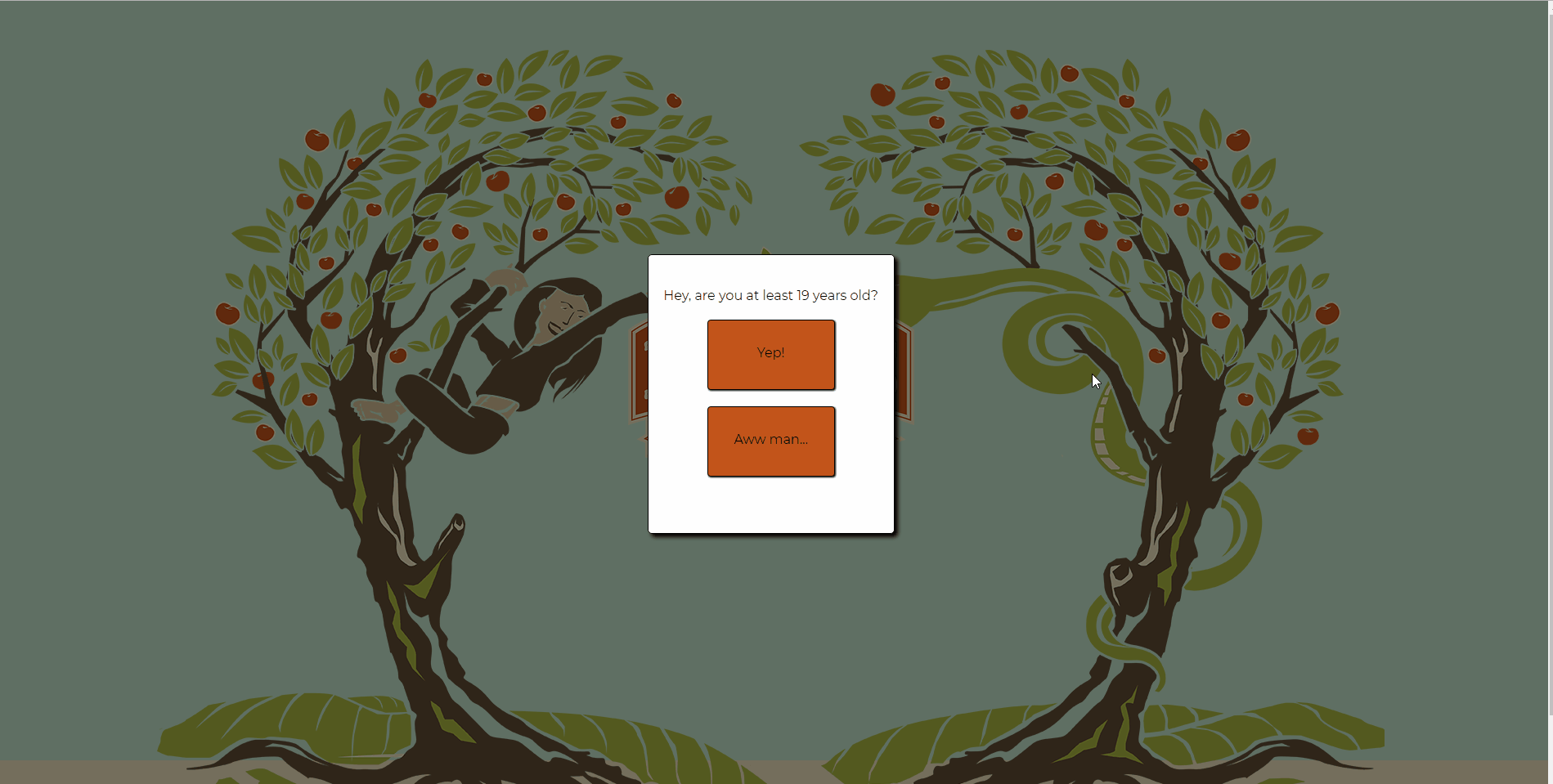
Side Projects, Tests, and Extra Work
Sometimes I get an idea in my head and it ends up on a sheet of paper, sometimes it ends up being a quick sketch, and sometimes it’s a virtual stadium where you hit fireballs with a baseball bat and try not to die.
I also had an article written about me over at Earnest.com!

Baseball, But Really You're a Wizard
Motion- and gesture-based interactions have been a passion of mine for as long as I can remember, back to hacking a Nintendo Wii remote to track an IR LED I bought at Radioshack.
This project (one photo above, one below) started out as a game to try leveraging the hockey concept to other sports, but quickly became a testbed for wild ideas using the Thalmic Myo armband and the Leap Motion hand-tracking camera system.
The most-complete of these ideas involved a wizard-like experience where the player could, with a combination of gestures, cause a fireball to appear in their hand. The fireball would grow and shrink as they opened or closed their fist, and they could toss it between their hands, or off into the distance (still in a baseball stadium), where it would explode dramatically.
Needless to say, the sports-conference attendees who tried this demo didn’t care about playing the “baseball” part of the experience.
(Note: the photo below isn’t me, but is a good friend who wanted to be a wizard really badly)


Malus Ciderhouse Website
I was asked to design and build a simple marketing website and included store for a small cidery near Toronto, Canada. Though the site was only live for a short time due to other concerns, it was a fun small project and opportunity to design something simple and straightforward completely from scratch. (One photo above, one below)

Contact Your State Reps Microsite
I was hired by the Harm Reduction Action Center of Colorado to create a site with a very short timeline that would allow residents to contact their state representatives using only their ZIP code as a reference point.
I leveraged the Open State Project’s API, as well as Google’s geolocation API to convert ZIP code into coordinates, and then determine the user’s representatives from there.
I expect to continue using these two APIs in concert for future projects, and am currently expanding it into a more-featured, content-agnostic platform for people to more easily get information about their representation.